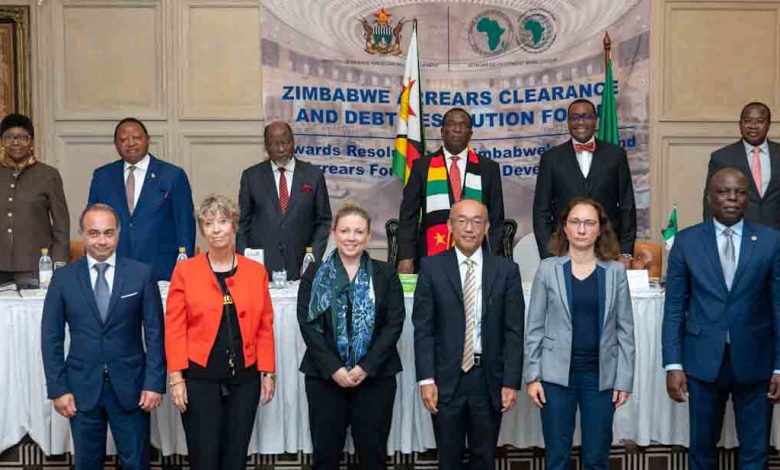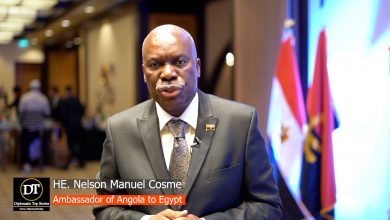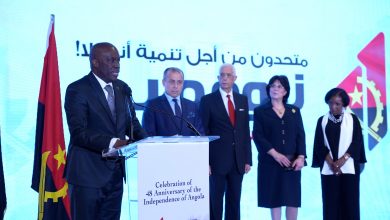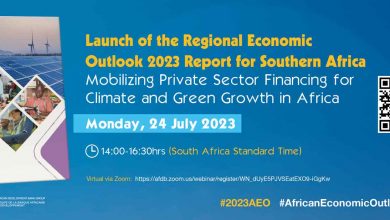Optimism as Zimbabwe Holds Second Meeting of Structured Dialogue Platform on Arrears and Debt Resolution | African Development Bank

Diplomat.Today
The African Development Bank
2023-02-24 00:00:00
——————————————-
The Zimbabwean government took an important step in its dialogue with creditors this week by hosting a second structured dialogue platform meeting on the process of clearing arrears and resolving debt. This followed talks with development partners last December.
Supported by the African Development Bank Group, senior members of the Zimbabwean government met last Thursday with the country’s development partners – diplomatic representatives of mainly creditor countries – and multilateral financial institutions, including the African Development Bank Group.
Dr. Akinwumi Adesina, president of the African Development Bank Group, named champion of the process of clearing arrears and resolving debts by President Mnangagwa last year, played a central role in the talks, which he and the former president of Mozambique, Mr. Joaquim Chissano, chaired. President Mnangagwa has appointed Mr. Chissano appointed as facilitator of the process of re-engagement and high-level dialogue, with Ms. Luisa Diogo, former Prime Minister of Mozambique as technical advisor.
President Mnangagwa told delegates that Zimbabwe’s debt burden of about $17.5 billion continued to weigh heavily on the country’s development efforts. He emphasized the impact on human development. He assured the delegates that Zimbabwe was determined to settle all outstanding debts to its creditors, including those owed to the African Development Bank, other multilateral financial institutions and international creditors.
The Zimbabwean leader said Zimbabwe’s challenges had affected the sub-region broadly. He said: “The South African region has not been spared. In Zimbabwe we have adapted to our reality. We haven’t had a choice. We chose to look ahead and use our resources to care for Zimbabweans. At one point, our economy almost completely collapsed. But it has recovered, and it has done so under the guidance of our Minister of Finance and Economic Development, Professor Mthuli Ncube.”
Dr. Pointing to the human impact of sanctions, Akinwumi Adesina, chair of the African Development Bank Group, said: “Around 44% of the Zimbabwean population today lives in poverty. Much of this is due to the economic constraints Zimbabwe has faced over the past two decades. The people of Zimbabwe cannot continue to suffer.”
President Mnangagwa said the ongoing dialogue had already yielded valuable results that set the agenda for the second dialogue forum. President Mnangagwa said on one of the most important issues: “My government has agreed on a compensation package for commercial farmers, and we are committed to that.”
President Chissano said the outcome of his deliberations as a process facilitator had exceeded his expectations. He said everyone had praised the dialogue as a remarkable achievement, but added that some development partners wanted to see the leadership of the process translated into more visible action by the country’s president.
“History should not host the process,” said President Chissano, adding: “It is important to facilitate renewed engagement by pursuing dialogue. Regular dialogue builds trust.” He emphasized the importance of managing perceptions and misconceptions, which he felt often undermined reality and could undermine the possibility of meaningful and substantive engagement, urged development partners to have reasonable expectations and assured them that the Zimbabwean government was determined to achieve its objectives.
The former Mozambican head of state identified two low-hanging fruits for the government, which he said would help build confidence with its partners, in particular: the issue of compensating farmers under the Bilateral Investment Protection and Promotion Agreements (BIPPAs); and holding free and fair elections later this year.
“This opportunity should not be wasted,” Chissano stressed, adding, “an economically revitalized Zimbabwe and South African Development Community could power the region.”
Finance and Economic Development Minister Professor Mthuli Ncube briefed the meeting on the progress made so far on various aspects of the reforms. His colleagues in the cabinet, Minister of Justice, Legal and Parliamentary Affairs Ziyambi Ziyambi, complemented him; Secretary of State and International Trade, Frederick Shava; and Minister of Lands, Agriculture and Rural Settlements Angstig Jongwe Masuka.
Representatives from various development partners gave their views on the state of play of the process. The unified feeling expressed was one of strong enthusiasm and optimism for success. European Union (EU) Ambassador Jobst von Kirchmann told the government: “You played the ball in our camp, and now… it is up to us to consult our capitals in a spirit of trust and confidence to achieve what we all want: work together to achieve arrears and debt resolution for Zimbabwe.”
Adesina summed up the day’s discussions as transparent and candid. He said it had been excellent dialogue with no one holding back on the tough issues. He said what emerged clearly was that there was strong political ownership and leadership to map out a solution path.
The president of the banking group recalled President Mnangagwa’s affirmation in his opening speech and said: “The president could not have been clearer. He was here. He knows the problems and he is committed to the reforms needed under the central pin strategy – namely on economic reform, governance reform and the issue of land compensation for commercial farmers and the bilateral investment protection and promotion agreements.
Citing ambassador Verwijk, Adesina repeated the diplomat’s adage that “trust comes on foot and leaves on horseback”. He supported the creation of a working group on land and compensation so that all stakeholders could discuss the issues, including the government, the banks, other financial institutions, the bilateral partner countries involved in BIPPAS and the farmers themselves.
Finally, the head of the African Development Bank Group drew on the words of EU Ambassador Jobst von Kirchmann, who said: “We must help Zimbabwe now. They’ve done a lot. They all pushed this forward. you [Zimbabwe] have played the ball in our side and it is now time for us to go back and assess.
It was agreed that two more meetings like Thursday’s meeting would be needed – one at the end of March and one each at the end of March and one ahead of a high-level forum in the second week of May. “Success is the only option, and together we will support Zimbabwe,” said Adesina.
——————————————-



